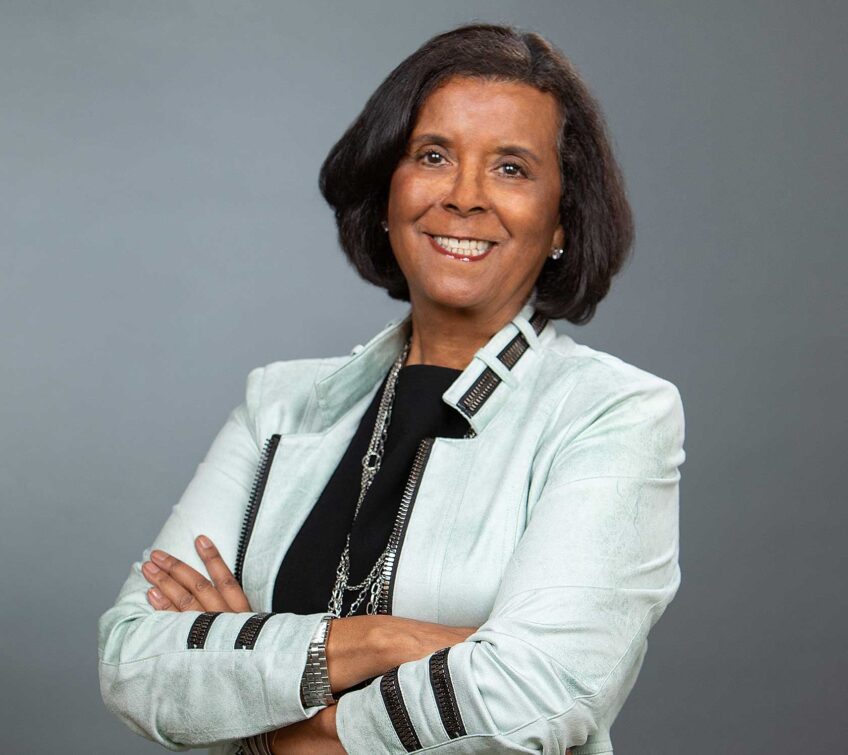

Author: Photo courtesy of UMassDaniel Hodge, director of economic and public policy research at the University of Massachusetts Donahue Institute.
In the last decade, reports have shown that half of the students that graduate from college in Boston leave after graduation, which has caused an outcry that the so-called “brain drain” effect is damaging the local economy. But Boston officials don’t buy it, and last week they came out and said so.
“There is no brain drain in Boston and you cannot retain all the students that come here because there is no relation between all the students that come here and the job market,” said Alvaro Lima, director of research at the Boston Redevelopment Authority, and author of the report “Retaining Recent College Graduates in Boston: Is There a Brain Drain?”
Released last week and based on work of the BRA and the University of Massachusetts Donahue Institute, the report refutes the arguments of critics who use prior research — including a 2003 analysis by Boston Consulting Group and a 2013 study by Northeastern University — to contend that Boston fails to keep a majority of local college graduates in the city, and that policymakers should do more to make it happen.
Brain drain is typically thought of as the large-scale departure of skilled, college-educated workers due to the lack of jobs. Many countries around the world complain of this as skilled workers flock to other nations for better job markets. Other cities in the U.S. also have similar worries.
While conventional wisdom suggests that the data doesn’t lie, Lima says it really does in Boston’s case.
Approximately 150,000 students graduate with bachelor’s degrees from Boston-area colleges each year, meaning that if prior research is correct, as many as 75,000 leave. But Boston only has about 71,000 total job openings each year, with only about 20,000 to 27,000 of these jobs being ones that a recent college graduate is qualified for.
In other words, there are way more graduates than job openings, even in a healthy economy.
Lima believes that Boston is in a great position when it comes to retaining the best and the brightest because companies can pick and choose from the cream of the crop of new college graduates and then the rest can go elsewhere.
All signs point to a great situation for Boston and its economy.
“A low employment rate and high job growth — these conditions do not go together with concerns about brain drain,” Lima said. “It is not something that is killing Boston.”
And what if the brain drain critics actually got what they wanted and kept most of the college students who graduate each year? Adding 150,000 people a year would double Boston’s population every 10 years, numbers that no city could handle.
“There is no example in history of this happening,” Lima pointed out.
BRA and UMass researchers are not suggesting that businesses and policy makers ignore the rates of local college graduates that remain in Boston to work because they do believe it is critical to continue to add a skilled workforce to the local economy. But they suggest the smarter move is to track how many jobs are being filled and make sure Boston companies are attracting young, highly skilled labor, no matter where they are from.
“It is probably more important focusing on who is here,” said Daniel Hodge, director of economic and public policy research at the UMass Donahue Institute.
The data shows that Boston has a large population of young professionals to continue to fill its workforce into the future. Between 2000 and 2010, the city’s population of 20- to 34-year-olds grew 11 percent, faster than the statewide average for population growth. Overall, this age group makes up 35 percent of Boston’s population, which is the highest percentage in any major American city. By comparison, only Seattle, Washington, D.C., Austin, Texas, and Columbus, Ohio, have more than 30 percent of their population within this age range.
Hodge is also encouraged by Boston schools such as UMass Boston and Northeastern University that have a higher percentage of graduates that stick around and work in the city after they graduate, likely because both schools have a higher percentage of local students.
All numbers aside, educating local students and providing them jobs to stay home after they graduate can only be seen as a good thing.
Forget Boston. Regions like Western Massachusetts should be the real focus of any brain drain talk, according to Hodge. Colleges there have almost no chance of keeping their graduates.
“The Boston area is more appealing,” Hodge said. “There is an uphill that other places face much more directly than Boston does.”


![Banner [Virtual] Art Gallery](https://baystatebanner.com/wp-content/uploads/2024/04/Cagen-Luse_Men-at-store-e1713991226112-150x150.jpg)



